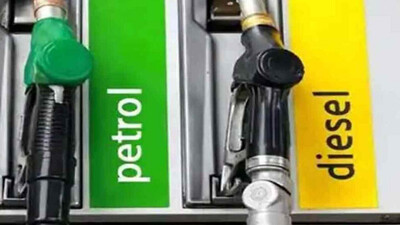By Comrade Nelson Nnanna Nwafor
Foundation for Environmental Rights, Advocacy and Development, FENRAD, a pro-democracy and environmental rights advocacy group based in Abia State wishes to condemn in its entirety the current price regime of the petroleum industry which is plaguing all Nigerians, especially the poor.
First, as a keen observer of the industry, FENRAD regrets that the current regime is peopled mostly by people whose understanding of the issue begs the question whether competence is still the yardstick of choosing who gets what and how. Our worry ranges from our doubt that the government understands the trends in the sector and is therefore capable of addressing such.
To show how confused the whole petroleum industry is, many contradictory policy statements have been issued which do not show consistency. First, the federal government removed subsidy on petrol causing hardships on all Nigerians, and when it became clear that the federal government is still subsidizing the NNPC through under-recovery, it still kept everything undisclosed, even after Dangote, a business mogul built his 650,000-barrel per day refinery, the biggest in Africa.
The government and its agencies appeared to be working at cross purposes. First, the government, after Dangote complained that some challenges wouldn’t allow him to carry out his business, later set up a committee to work out the modalities of selling crude to Dongote in the naira. Up until now, that committee chaired by the Honourable Minister of Finance, Wale Edun, has yet to release a singlr line of report on how that goal can be achieved. Rather, the news went that the federal executive council, FEC will determine the price of the product in an open market economy like ours. Later, Dangote said the NNPC would be the one to determine the price of its product. But today, the NNPC is saying that the price of the product (from Dangote) will be determined by the market forces and foreign exchange. What then did the order to sell crude to Dongote in the naira mean, if market forces and FX are to determine the price of Dangote’s product?
Tbe Foundation states that Dangote’s investment is situated on a free trade zone where Nigerian tax and labour laws don’t apply, meaning that any purchase therein being moved to other parts of the country is considered as importation attracting charges like Form M and bill of lading, which the independent marketers cannot afford given that the landing cost differentials would be covered by them.
Without government intervention, no private marketer can directly buy Dangote’s product. Sadly, the government is helpless and financially handicapped. The NNPC is owing $6 billion to her suppliers. Currently, oil prices plummeted below the budgetary benchmark of the federal government, initially at $77.96 per barrel, down to $70 meaning that a revenue shortfall had crept into the budget of 2024 already. Since the federal government is now unable to subsidize Dangote’s product, chances of the marketers buying from him are not there. The Foundation observes that even the marketers are not able to buy from the NNPC without government intervention. It is understood why the NNPC today said market forces and FX will determine price of Dangote’s product. This is how the federal government intends to explain that its hands, in the face of dwindling revenues, are tied.
With the global oil market bearish and Nigeria nearing fiscal cliff with her fiscal space unable to absorb shocks and volatilities in the international oil market, the best option is to create a competitive market by licensing local and artisanal refineries just as former President Muhammadu Buhari licensed operators in the gold mines of Zamfara and elsewhere through the Presidential Artisanal Gold Mining Development Initiative, PAGMDI. This is timeous and ideal because as it appears Nigeria does not have refining capacity yet. The NNPC controls the four refineries which have remained moribund after years. Dangote’s refinery is a private business established in a free trade zone where only the operators can determine the price.
Let the federal government allow local players to come to the mainstream local market as the pain cannot continue.
Lastly, Nigeria should begin to move away from petrolism to clean, renewable and smart agriculture. The world is not waiting for us, says the Foundation. Let us expand the oil industry landscape by having the content monitoring board license qualified local refiners, to help us escape looming energy crisis in a country whose economic livewire is one thing – petrol. The oil sector is the federal government’s exclusive preserve, fixing it by requires national planning. Let the promised hope begin to come.
Comrade Nelson Nnanna Nwafor is Executive Director, Foundation for Environmental Rights, Advocacy & Development (FENRAD Nigeria)








k45r8m
Does your blog have a contact page? I’m having a tough time locating it but, I’d like to send you an email. I’ve got some ideas for your blog you might be interested in hearing. Either way, great website and I look forward to seeing it expand over time.
I think other website proprietors should take this website as an model, very clean and wonderful user genial style and design, as well as the content. You are an expert in this topic!
dl6wci
whoah this blog is magnificent i love studying your articles. Stay up the good work! You understand, a lot of persons are searching round for this info, you could help them greatly.
I wanted to thank you for this great read!! I definitely enjoying every little bit of it I have you bookmarked to check out new stuff you post…
zgr4iy
7ct5gv
z97du0
77p6tt
blvdzz